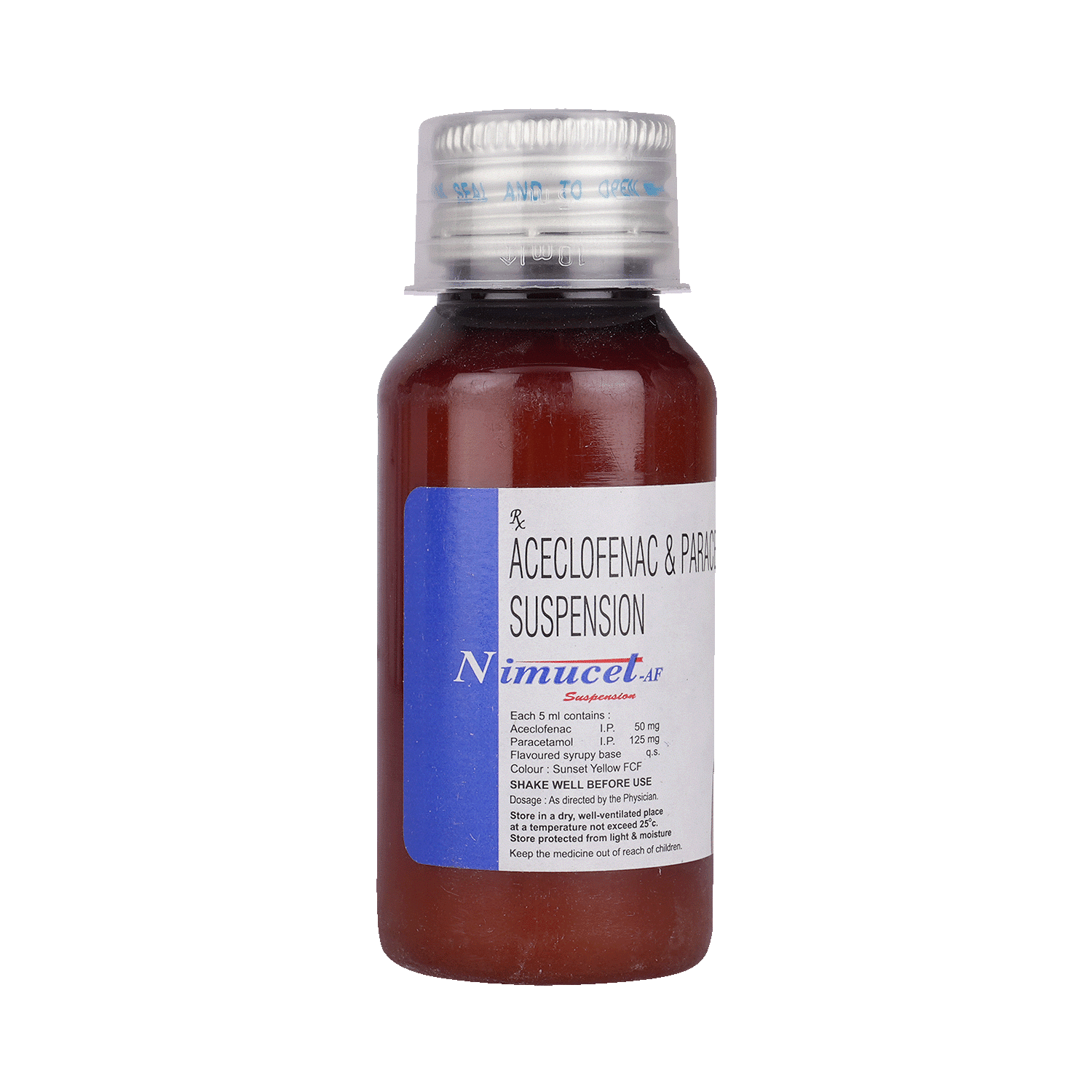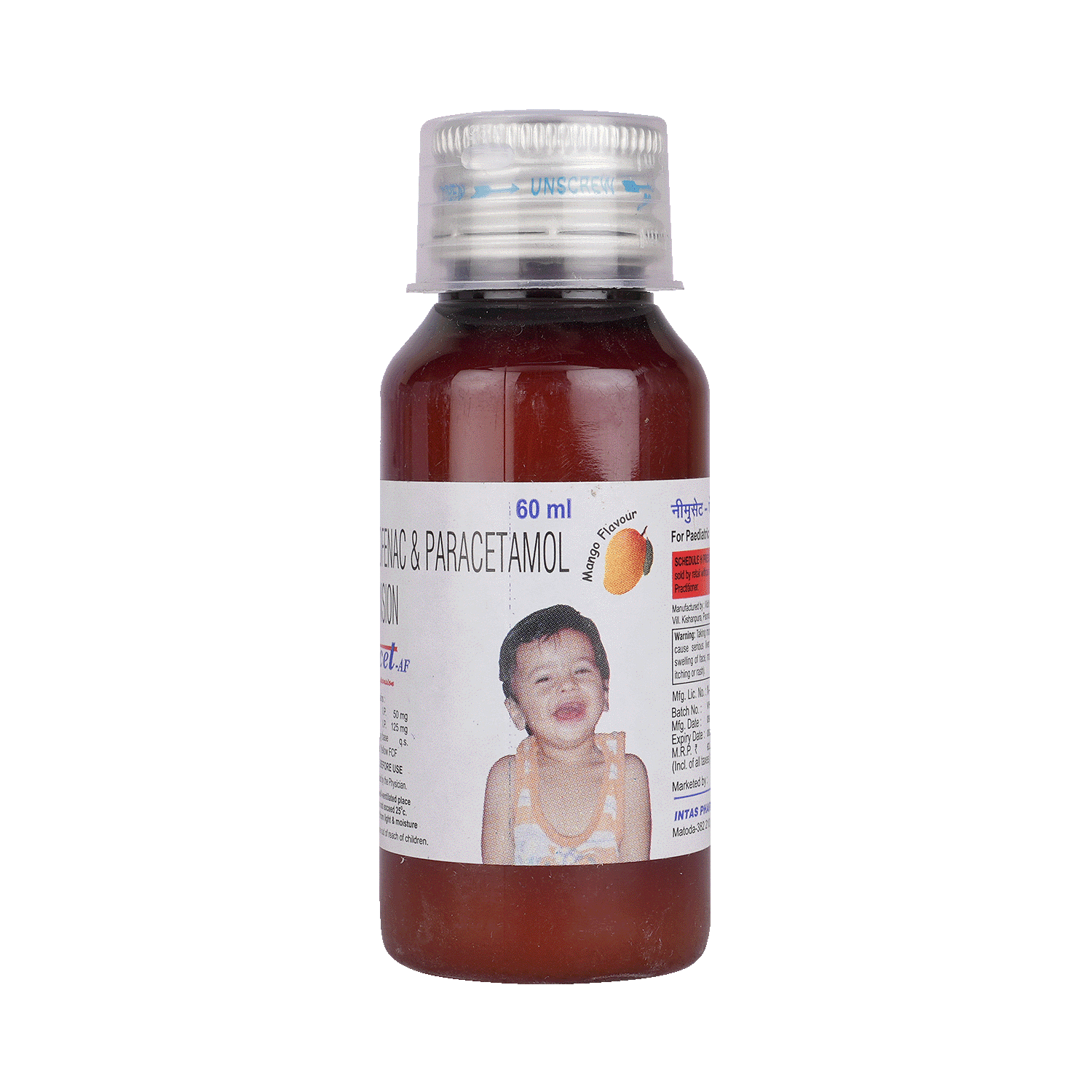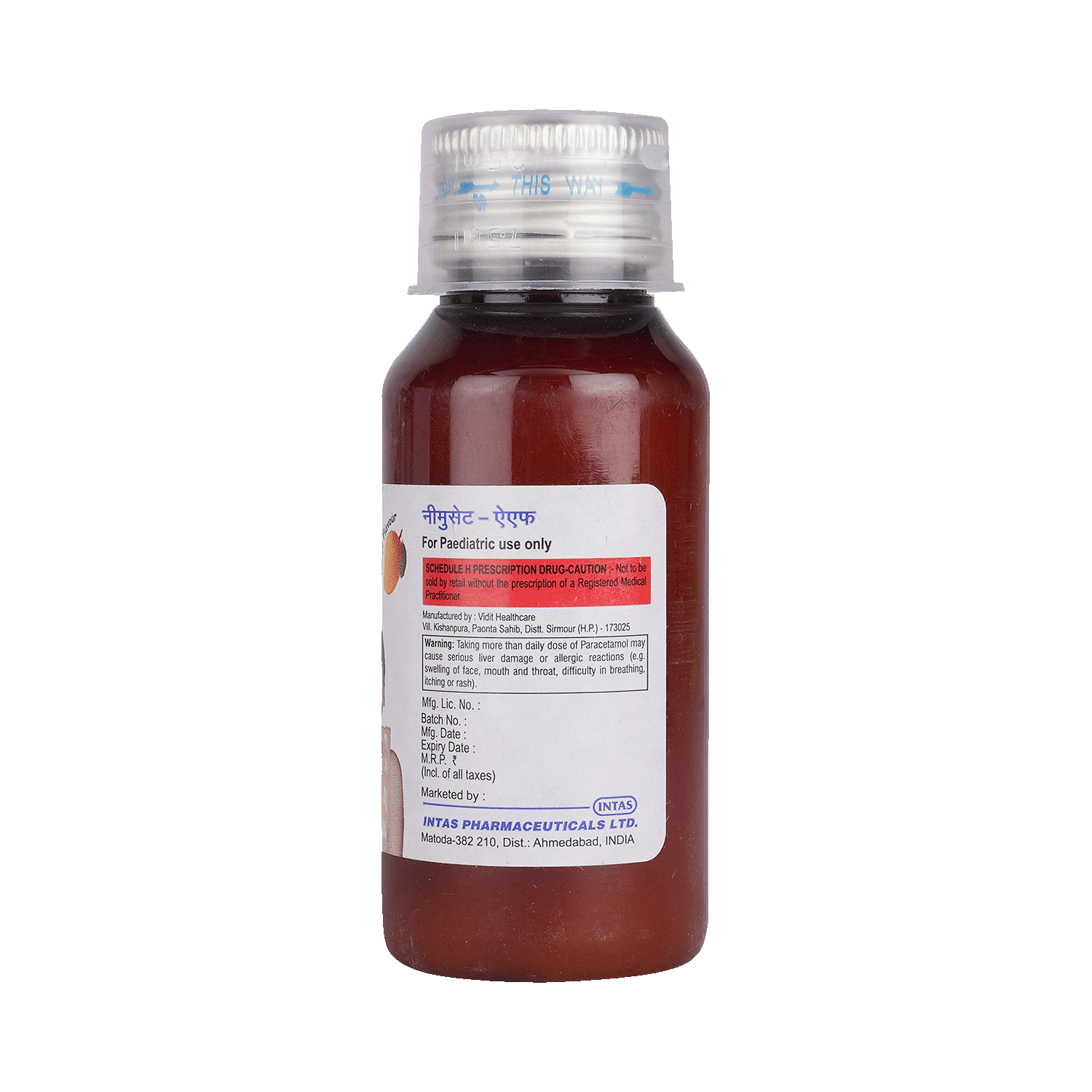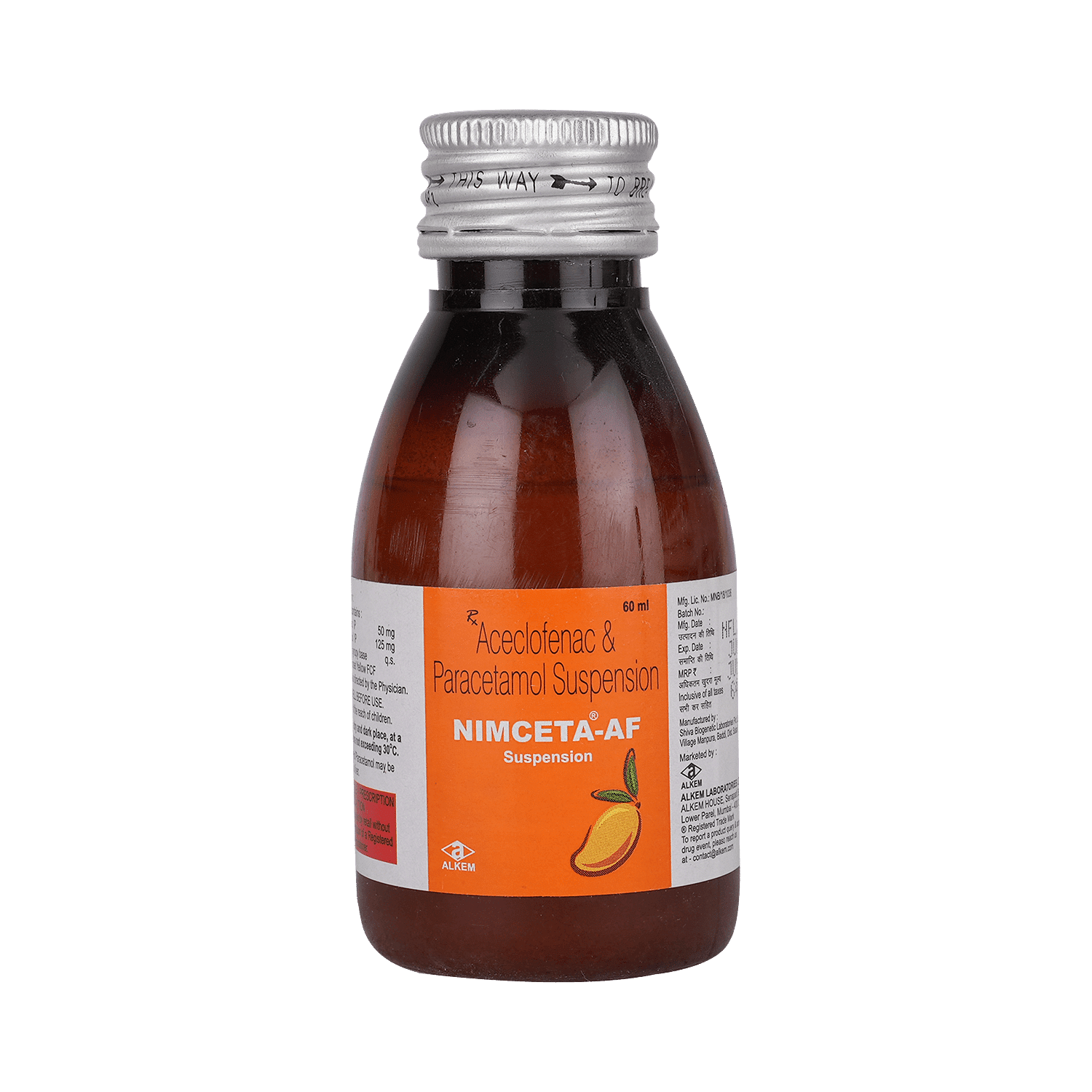


Nimucet-AF Suspension Mango
Manufacturer
Intas Pharmaceuticals Ltd
Salt Composition
Paracetamol (125mg/5ml)
Key Information
Short Description
Nimucet AF Suspension helps lower body temperature (fever) and reduce pain and inflammation (redness and swelling) both in infants and children.
Dosage Form
Suspension
Introduction
Nimucet AF Suspension is a medication designed to help lower body temperature and reduce pain and inflammation in infants and children. It contains two active ingredients: Aceclofenac and Paracetamol, which work by blocking the action of chemical messengers responsible for pain, fever, and inflammation. While it is generally safe, it is important to monitor your child for any signs of allergic reactions or stomach pain after administration. Always consult your child's doctor if you notice any adverse effects or if there is no improvement in your child's condition.
Directions for Use
Give this medicine to your child after food to avoid abdominal discomfort. Maintain a log of your child’s temperature and the dosage given to prevent overdosing. Ensure your child stays hydrated, eats a balanced diet, and gets plenty of rest.
How it works
Nimucet AF Suspension comprises two active ingredients: Aceclofenac and Paracetamol. These medicines work by blocking the action of chemical messengers responsible for pain, fever, and inflammation (redness and swelling).
Quick Tips
Give this medicine after food to avoid abdominal discomfort in your child. Maintain a log of your child’s temperature. If you do not see any improvement, contact your child’s doctor for advice. Keep a track of the dose and the frequency in which you have given this medicine to your child to prevent overdosing. Give plenty of fluids to your child to ensure proper body hydration. Give your child a balanced diet. Encourage your child to have optimum sleep since sick children get tired soon and getting plenty of rest helps them recover faster. Stop the medicine and consult your child’s doctor in case your child exhibits allergic rash or stomach pain soon after taking this medicine.
Related Medicines

Aceclotp-P 50mg/125mg Suspension

Acirace P Suspension

Acloriz-P Suspension

Raflofen-P Suspension

Acenov P 50mg/125mg Suspension

Nanceclo P 50mg/125mg Suspension

Cyclofit Suspension

Actibull Suspension

Nimceta AF 50 mg/125 mg Suspension

Albiflam P Suspension
Frequently asked questions
Can I adjust the dose of Nimucet AF Suspension for my child based on the severity of their illness?
No, it is not recommended to alter the dose of Nimucet AF Suspension without consulting a doctor. Increasing the dose without proper judgment may lead to toxicity, while decreasing it may cause recurrence of symptoms. For best results, speak to your child's doctor if you feel a change in dose may be needed.
How much Nimucet AF Suspension should I give to my child?
Your doctor will prescribe the dose according to your child's condition and body weight. Stick to the prescribed dosing schedule as that is the best way to ensure the safe and complete recovery of your child.
How should Nimucet AF Suspension be stored?
Nimucet AF Suspension should be stored at room temperature, in a dry place, away from direct heat and light. Also, keep all medicines out of the reach and sight of children to avoid any accidental intake.
Can all children be given the same dose of Nimucet AF Suspension?
No. Nimucet AF Suspension cannot be given to everyone in the same dose. The doctor decides the appropriate dose of Nimucet AF Suspension based on the child's age and body weight. The dose will even change for your child when they become older. Since the dose changes so unpredictably, you must never give any dose of this medicine to anyone without consulting a doctor. Follow your doctor's instructions carefully to get the most benefit.
When will my child feel better?
You may be required to give Nimucet AF Suspension to your child for a few days to weeks, depending upon the severity of the infection. Keep giving this medicine to your child in the dose and frequency advised by the doctor and you'll notice that the pain or fever will reduce and your child will start feeling better. However, if your child continues to feel unwell even after completion of the full prescribed course of the medicine, consult your child's doctor as soon as possible.
Are there any serious side effects of this medicine for my child?
Although Nimucet AF Suspension is well-tolerated by children, if you notice your child experiencing any intolerable episodes like persistent vomiting, body swelling, decreased urine frequency, or serious allergic reaction, rush to your doctor on an immediate basis.
Are there any specific contraindications associated with the use of Nimucet AF Suspension?
The use of Nimucet AF Suspension is considered to be harmful for patients with known allergy to any of the components or excipients of this medicine or in patients with known allergy to other painkillers (NSAIDs). It should preferably be avoided in patients with a history of stomach ulcers or in patients with active, recurrent stomach ulcer/bleeding. It should also be avoided in patients with a history of heart failure, high blood pressure, and liver or kidney disease.


